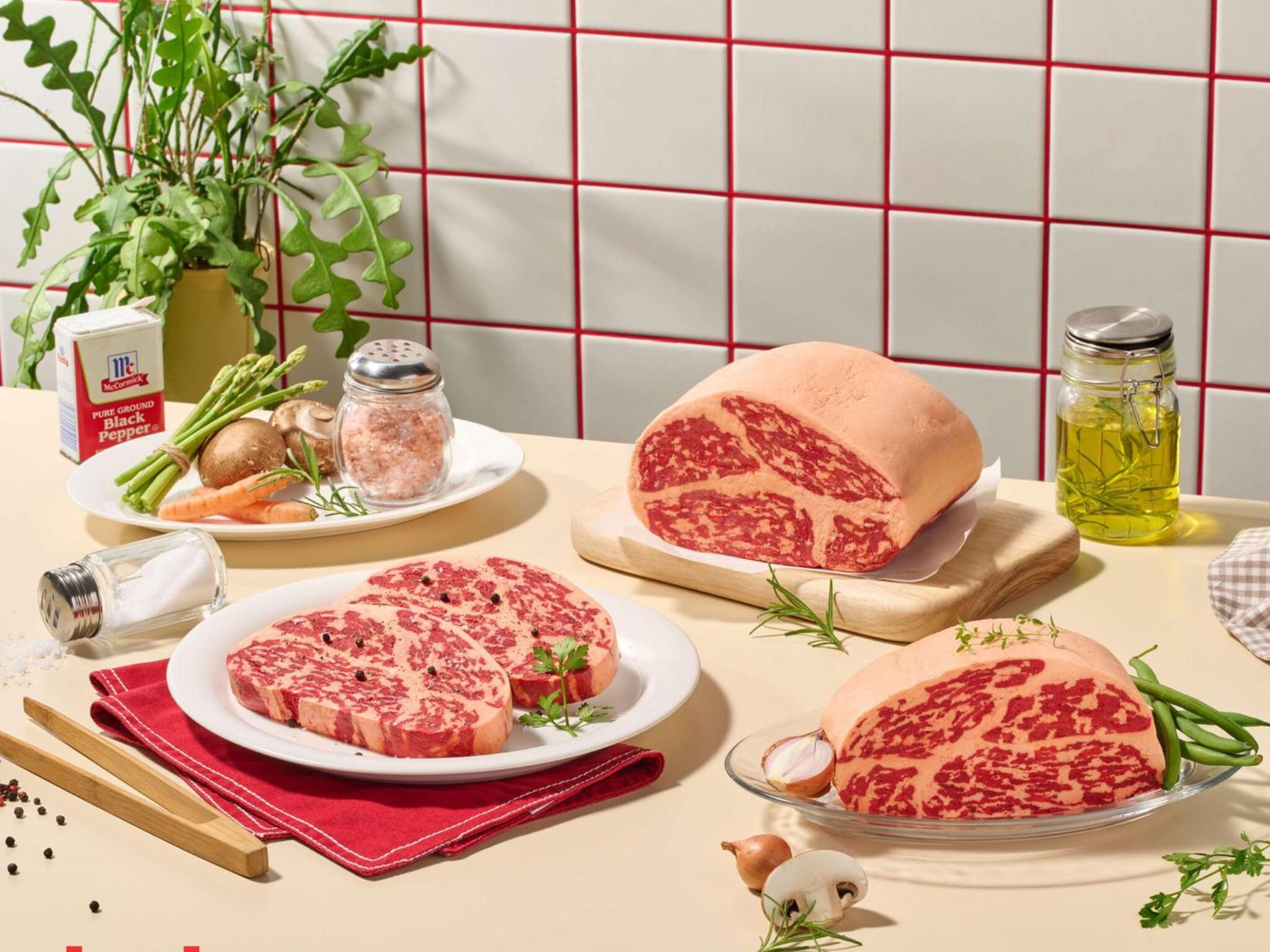South Korea Establishes Framework for Regulatory Approval of Cultivated Meat, With Applications Expected Soon
6 Mins Read
South Korea has opened up the regulatory approval process for cultivated meat, after the Ministry of Food and Drug Safety established the framework for these applications.
During the launch of the APAC Regulatory Coordination Forum in October, Mirte Gosker, director of founding organisation the Good Food Institute (GFI) APAC, predicted that South Korea would be among the APAC countries next in line to develop regulatory frameworks for cultivated meat, with both countries “proactively seeking input from industry groups to craft clear and efficient safety review processes”.
Four months on, that prophecy has come true, with South Korea now accepting applications for the regulatory approval of cultivated meat. Today, the Ministry of Food and Drug Safety (MFDS) officially published the Standards for Recognition of Temporary Standards and Specifications for Food, etc. to “revitalise the food industry”.
It has revised the framework and clarified the procedure for recognising food ingredients made from “cell and microbial culture” technology. This means that cultivated meat startups, which could previously only use these ingredients for R&D purposes, can now file dossiers to be allowed to sell these products in the country. So far, only Singapore, the US and Israel have approved the sale of cultivated meat.
The latter came just last month, when Israeli’s health ministry granted clearance to local startup Aleph Farms, whose regulatory affairs chef Yifat Gavriel said: “2024 stands to be a landmark year for the advancement of regulatory pathways and commercialisation of cultivated meat.” It certainly is proving to be the case, if South Korea’s announcement is anything to go by.
“Today’s announcement of a tangible path to market for cultivated meat companies is a welcome recognition of the important role that future foods will play as South Korea seeks to build a more secure and sustainable protein supply,” Sam Lawrence, vice president of policy for Asia at GFI, told Green Queen. “So far, the government has released an interim framework, which we expect to continue to develop and evolve over time.
What companies need to do and pay for regulatory approval in South Korea

While no producer has applied for approval, the expectation is that several local startups are likely to do so within the next few weeks. The entire process is set to take up to 270 working days, meaning even if companies apply soon, it’s unlikely that any clearance will be given this year.
Dossiers submitted to the MFDS must include safety verification data, including the name of the raw material, the origin of the cell, the manufacturing process, and international recognition and usage history. If the cells are derived from livestock, the application needs to provide information about the donor, such as country of origin, gender, age, and slaughter inspection certificate. For marine sources, data confirming the source of the donor must be submitted.
Moreover, the filing requires companies to divulge information about the human safety impact of the raw material, which entails digestibility, any negative health reactions, allergy and toxin data, and a confirmation of the genetic stability between the raw material and final ingredient.
The approval process will cost companies a fairly steep ₩45M ($34,000), quite the markup, especially given that not all countries charge a fee for the assessment of such novel food applications. Singapore and Israel, for example, have no fees attached to the process, for example.
Australia and New Zealand’s joint regulator also doesn’t charge a fee by default, unless companies want the procedure to be fast-tracked or prioritised. Currently, Food Standards Australia and New Zealand (FSANZ) is considering an application from Vow Foods for its cultured quail. The startup filed its application in February 2023, and is now awaiting a second round of public consultation, which will be followed by a 60-day period for ministers to comment on the regulatory body’s decisions
That being said, in practice, companies do tend to pay FSANZ the fee. “Considering that the only risk assessment to be completed by FSANZ was done via fee and still took quite a while – who is going to go the free route?” one policy expert familiar with the application process for cultivated meat approval in several countries told Green Queen, with the fees amounting to around AU$195,000 ($128,000). “In my mind, it is a de facto fee structure.”
As for the US, UK and EU, none charges a direct fee for the application. However, there are other expenses involved, and it’s not realistically possible to apply without them. The expert told us that there are peripheral costs. “Companies have to use third-party accredited labs for the analytics on the five non-consecutive batches required for the UK and EU. Those lab fees can add up to be several hundred thousand euros.”
GFI’s Lawrence added: “Regulatory agencies often operate on a cost-recovery basis and fee reductions are a point of discussion in many jurisdictions. It’s a known cost of doing business for companies operating in the future-foods space, but when GFI is asked for input by regulators, we consistently urge them to make their costs as low as possible, as higher costs can act as a barrier to innovation, particularly for startups.”
Consumer survey shows the importance of price parity for cultivated meat

The development will be welcome news for South Korea’s cultivated meat companies, including TissenBioFarm, Simple Planet, Space F, SeaWith, CellMEAT, and Cellqua, among others. It will also interest Korean noodle giant Nongshim, which has invested $7.4M in food tech VC funding with a focus on cultivated meat, and CJ CheilJedang, which has teamed up with KCell Biosciences to build a cell culture facility in Busan. And last week, scientists at Yonsei University showcased a hybrid rice variety with cultivated beef and cow fat cells as a proof of concept for more affordable beef with a smaller carbon footprint.
It concludes a process that began in 2022 when the MFDS included official guidance for alternative protein in the country’s National Plan, covering the safety, manufacturing processes, and regulatory approval of cultivated meat. A year ago, 28 industry stakeholders signed an MoU to advance the country’s cultivated meat industry, while a month later, the North Gyeongsang province opened a 2,309 sq m Cellular Agriculture Industry Support Center.
The APAC Society for Cellular Agriculture, which co-founded the APAC Regulatory Coordination Forum with GFI APAC, conducted a 1,110-person survey in October, revealing that 90% of respondents were willing to try cultivated meat at least once (though only 5% indicated they’d eat it regularly). Moreover, 39% were supportive of cultivated meat being sold at supermarkets and restaurants (with 14- to 29-year-olds leading the way), and just 10% were opposed to its commercialisation.
In fact, 19% of Koreans said they would prefer cultivated meat over plant proteins. But price remains a key purchase driver, important for 65% of citizens, followed by taste and texture (62%). While two-thirds of respondents spend up to ₩50,000 ($23-38) per week on meat products for the whole household, only 12% would part with ₩1,000-3,000 (75 cents to $2) more per 100g of cultivated meat. And just 6% would be willing to pay even more.
Despite that, 57% and 25% said they’d eat cultivated pork and beef, respectively, if they’re cheaper than their conventional counterparts. This indicates that scaling up production to reach price parity with farmed meat is among the biggest hurdles for South Korea’s cultivated meat sector.
“Hybrid products and scaling up production are key factors to achieve price parity – and it is at the forefront on many of the companies’ agenda either today or in the near future,” Calisa Lim, project manager at APAC-SCA, told Green Queen at the time. “We need combined synergies and efforts through investors, contract manufacturers, established stakeholders, startups, and government bodies to facilitate a thriving ecosystem for cultivated meat and seafood in South Korea.”
“GFI’s scientists and policy experts have offered our input to regulators during the consultation processes, and will continue to provide feedback to ensure the framework is effective and incorporates global best practices,” added Lawrence. “The agency is inviting companies to submit applications during this interim period, which we take as a positive sign that regulators are keen to get the local sector moving.”



